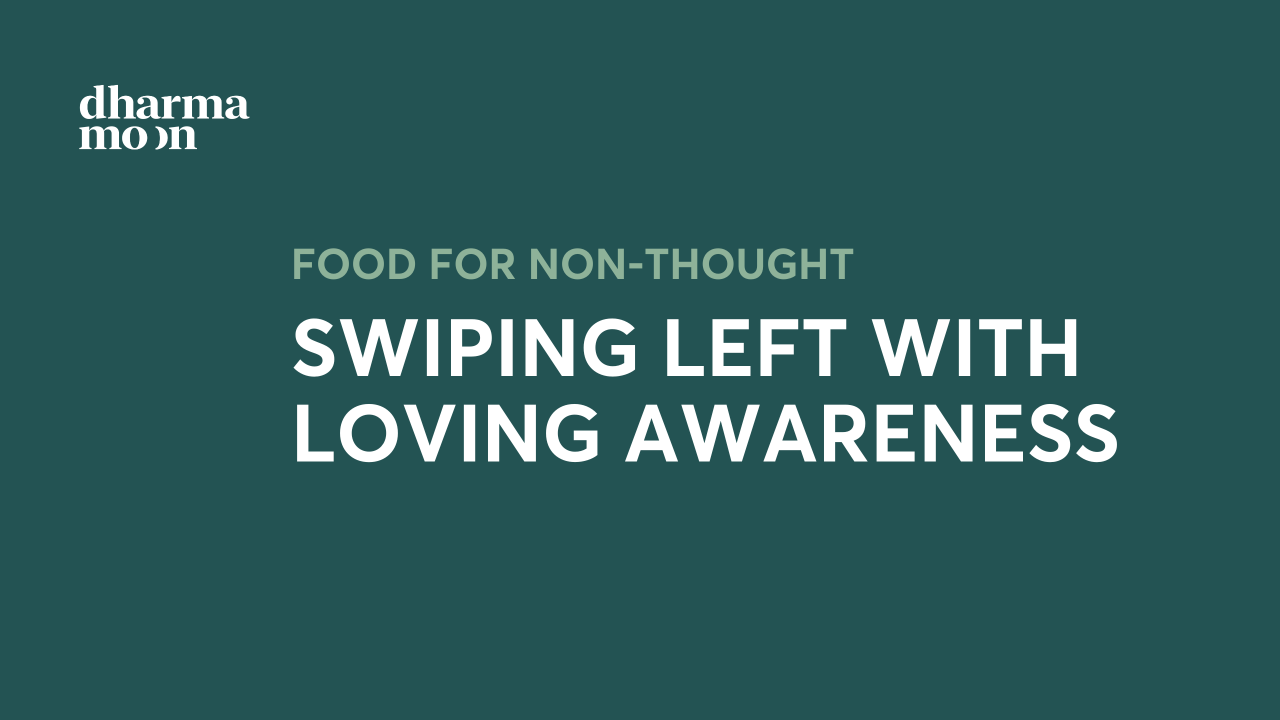Swiping Left With Loving Awareness

Written by Noel Coakley
“Sometimes the way we talk to ourselves isn’t so kind. Maybe we even speak to ourselves and relate to our experiences in a way that we never would with others. When we begin to engage in mindfulness meditation, developing non-judgmental awareness of our patterns of thinking and reacting is a little bit like doing couples therapy with our own mind.”
If you were to take that little voice inside your mind and form it into another person, how long would you last on a date? Personally, there are lots of days where I’d be asking for the check pretty immediately.
When you make a mistake, does the voice say, “It’s OK, you tried your best and here’s what we can learn here,” or does it sound more like, “Yup, screwed that up again, just as expected. You’re not very good at this, are you?”
Sometimes the way we talk to ourselves isn’t so kind. Maybe we even speak to ourselves and relate to our experiences in a way that we never would with others.
When we begin to engage in mindfulness meditation, developing non-judgmental awareness of our patterns of thinking and reacting is a little bit like doing couples therapy with our own mind. Before we take a look at it, there is an automatic and habitual relationship between our direct experience and the reaction and narration of it. We have a thought, an emotion, or take an action and then there’s the internal discussion about it.
Our relationship with ourselves is often heavily influenced by the way we were related to in our younger life. We unconsciously model the internal relationship based on the models provided. It becomes so engrained that it just sounds like me, rather than a voice I’ve inherited or heard too many times.
With mindfulness meditation, we develop awareness of our thoughts and emotions at any given moment. Over time, we begin to see patterns: there are ways our internal relationship operates that might be quite useful, supportive, and loving, as well as ways in which it is contributing to significant suffering, negative emotional states, and a very limiting self view.
When we observe them non-judgmentally and lovingly, it shines a light on these automatic patterns. This can be a result of habitual mindful awareness. Now, that mindful awareness might bring clarity to the relational pattern and may even interrupt it from going too far in the moment, but mindful awareness itself doesn’t necessarily create the new way of relating.
It does create the opportunity, however, to stop and ask, “How do I want to relate to this lovingly?” Since it can be challenging for many of us to relate to ourselves lovingly, it can be helpful for some to imagine how we would relate to our child (or a child), a loved one, or a close friend if they were experiencing what we just experienced. Then, we turn that inward.
The non-judgmental, loving awareness built into the practice of mindful awareness is like opening the internal Tinder app and swiping left (“no thanks”) on the relational habits that no longer serve us.

